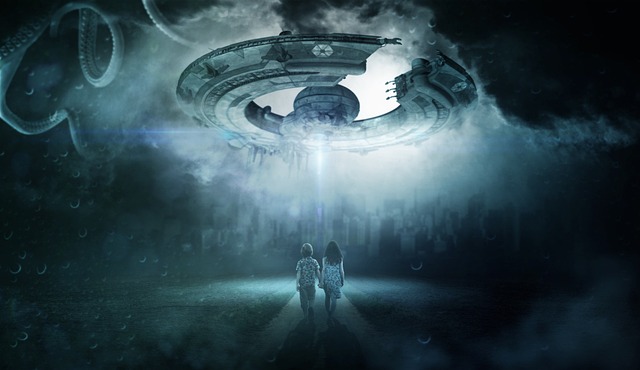
As the sun sets on a distant planet, a lone figure stands atop a rocky cliff, staring out into the endless expanse of space. In the distance, a fleet of alien ships approaches, their metallic hulls shining ominously in the fading light.
The figure shakes their head, muttering to themselves. “I knew this day would come,” they say, their voice low and gravelly. “But I wasn’t ready for it.”
They turn and run, making their way down the cliff as fast as they can. Behind them, the alien ships draw closer, their engines thrumming like a swarm of angry bees.
The figure reaches a small cave at the base of the cliff, ducking inside just as one of the ships sweeps over the opening, sending a gust of air rushing past them.
Inside the cave, the figure pulls out a small device, flipping switches and pressing buttons with practiced ease. A holographic map of the planet flickers to life before them, the alien ships highlighted in red.
The figure frowns, tapping a few more buttons. “I need more time,” they mutter. “But how to buy it?”
Suddenly, an idea strikes them. They pull out a small vial of glowing liquid, touching it to a series of wires and connectors. The liquid begins to bubble and hiss, emitting a bright light that illuminates the entire cave.
Outside, the alien ships slow to a halt, their pilots uncertain and wary. What was happening? Was the planet fighting back?
With a grim smile, the figure watches as the liquid begins to expand, filling the cave and spilling out into the surrounding area. It spreads like a living organism, engulfing everything it touches.
And then, as suddenly as it began, it’s gone. The alien ships, unable to analyze the strange substance, retreat into space, their mission unfulfilled.
The figure sighs in relief, turning off the holographic map and slipping the vial back into their pocket. They know it’s only a matter of time before the aliens return, but for now, they have bought themselves a small victory.
As they step back out into the cool night air, the figure looks up at the stars above, wondering what other challenges and adventures await them in the vast, infinite universe.
write an engaging transmission statement stating that above is an example of a science fiction story while talking about how we are about to delve into science fiction and science fiction writing
As demonstrated in the story above, science fiction invites us to explore new frontiers, encounter strange creatures from far-off worlds, and face epic challenges that test our limits. Whether you love reading or an aspiring writer hoping to learn some writing techniques on how to become a more effective author of the genre, you’ve come to the right place. Sit back, relax, and prepare to launch into the unknown as we discover new worlds and delve into the world of science fiction.
Elements of Science Fiction
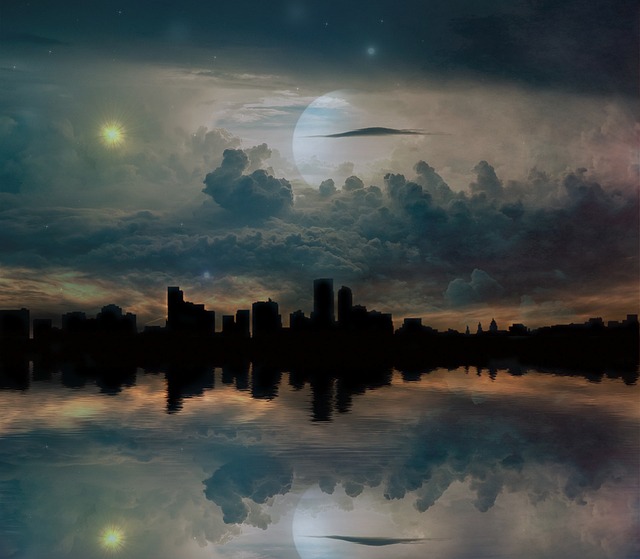
Science fiction is characterized by a unique blend of imaginative elements that transport readers to unexplored territories and challenge the boundaries of what is known and possible. Understanding the key elements of science fiction is crucial for writers aiming to create compelling and thought-provoking narratives in this genre. Let’s delve into these elements:
Imaginative and futuristic settings
Science fiction often takes place in settings that extend far beyond the confines of our present reality. From distant planets and galaxies to post-apocalyptic Earth or even virtual realities, science fiction authors have the freedom to create imaginative and visually striking landscapes that captivate readers’ imaginations. These settings serve as the backdrop for the unfolding of the narrative, setting the stage for awe-inspiring adventures and exploration.
Your science-fiction world may involve technology powered by quantum computing, and you could dive deep into the technical details, or you may focus completely on the characters, with the science-fiction, artificial intelligence, and techology only serving as inconsequential background. Even with flying cars and robot servants, people may still get murdered, lovers still get jealous, and stories evolve out of human emotion.
Advanced technology and scientific concepts
One of the hallmarks of science fiction is the incorporation of advanced technology and scientific concepts that push the boundaries of what we currently understand. From futuristic gadgets and inventions to interstellar travel and genetic engineering, science fiction explores the possibilities of scientific advancements and their impact on society and individuals. The inclusion of these elements adds a sense of wonder and fascination to the story, sparking readers’ curiosity about the future of science and technology.
Speculative ideas and alternate realities
Science fiction often ventures into speculative ideas and alternate realities, posing “what if” scenarios and challenging the norms and assumptions of our world. Whether it’s exploring parallel universes, time travel, or alternate histories, science fiction writers push the boundaries of our understanding, prompting readers to contemplate the infinite possibilities that exist beyond our current reality. These speculative ideas serve as a catalyst for imaginative thinking and philosophical reflection.
Exploration of social and philosophical themes
Science fiction offers a platform for writers to delve into profound social and philosophical themes. Through the lens of a futuristic or alternative world, science fiction examines issues such as the nature of humanity, the consequences of unchecked technological progress, the ethics of scientific experimentation, the implications of social hierarchies, and the exploration of identity and belonging. By addressing these themes in a speculative context, science fiction allows for critical examination and invites readers to contemplate the potential ramifications of our actions and beliefs.
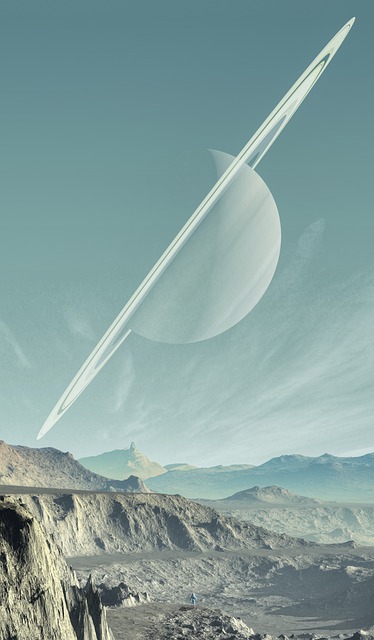
Characters and their interactions in a science fiction world
While the imaginative elements of science fiction are captivating, it is the characters that breathe life into these worlds. Science fiction writers create compelling and relatable characters who navigate the challenges and opportunities presented by their extraordinary environments. These characters face dilemmas unique to their futuristic or alternate reality, allowing for exploration of their strengths, weaknesses, and personal growth. The interactions between characters, whether human, alien, or artificial intelligence, drive the emotional core of the story, enabling readers to connect on a deeply human level.
Worldbuilding in Science Fiction
Worldbuilding is a crucial aspect of science fiction writing, as it involves creating intricate and immersive settings that transport readers to new and captivating worlds. In science fiction, the world serves as a canvas for the story to unfold, and a well-developed world enhances the believability and engagement of the narrative. Let’s explore the key components of worldbuilding in science fiction:
Believable and immersive settings
Building a believable and immersive setting is essential in science fiction. Authors must pay attention to the details of the environment, such as geography, climate, and ecology, to create a world that feels authentic and consistent. Whether it’s a sprawling space station, a dystopian megacity, or an alien planet, the setting should be described vividly, engaging readers’ senses and allowing them to visualize and experience the world alongside the characters.
Developing societies, cultures, and political systems
In science fiction, societies, cultures, and political systems can vary greatly from what we know in our present reality. Writers must carefully craft these aspects, taking into account the historical context and the impact of technology and scientific advancements on social structures. Exploring different forms of governance, social hierarchies, and cultural practices adds depth and richness to the world, allowing readers to immerse themselves in diverse and dynamic societies.
Designing futuristic technology and scientific principles
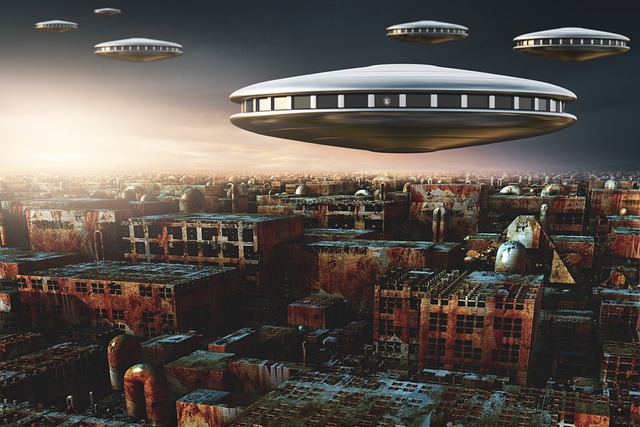
Science fiction often features advanced technology and scientific principles that shape the world and its inhabitants. Authors must invent and describe these futuristic technologies, ensuring they are internally consistent and logically grounded within the story’s universe. Whether it’s faster-than-light travel, sentient artificial intelligence, or mind-uploading, the technology should be intriguing yet comprehensible to readers, providing a sense of wonder and possibility.
Most Famous Science Fiction Authors
Isaac Asimov
Isaac Asimov, an iconic figure in science fiction, is renowned for his “Foundation Series” and “Robot Series.” His works often explore themes of robotics and psychohistory, a fictional science blending sociology and mathematics to predict future events. Asimov, a biochemistry professor, brought a scientific rigor to his storytelling, heavily influencing the science fiction genre. His “Three Laws of Robotics” have become a staple in both science fiction literature and robotics philosophy.
Arthur C. Clarke
Arthur C. Clarke is celebrated for his landmark novel “2001: A Space Odyssey,” developed concurrently with the Stanley Kubrick film. Clarke’s writing often delved into explorations of human consciousness and the cosmos, blending scientific accuracy with profound philosophical questions. He is credited with the concept of geostationary satellite communications, demonstrating his ability to foresee technological advancements. Clarke’s works, including the “Rama Series,” are praised for their visionary ideas and the integration of science with spirituality.
Philip K. Dick
Philip K. Dick, known for his novel “Do Androids Dream of Electric Sheep?”—which was adapted into the film “Blade Runner”—explored themes of reality, identity, and human nature. His work often featured dystopian settings and alternate realities, questioning the nature of existence and perception. Dick’s influence extends beyond literature into popular culture and philosophy, particularly through his exploration of what it means to be human in an increasingly technological world.
Sci-Fi Related Events
In the world of writing science fiction, attending conventions is a key experience for both budding and experienced authors. These events are hubs where creativity, knowledge, and networking converge, offering panels, workshops, and discussions led by industry experts. They are a goldmine for learning about the latest trends, technological advancements, and narrative techniques in the sci-fi genre. For writers, these conventions are not just about gaining insights but also about connecting with a community that shares a passion for science fiction storytelling.
Science fiction conventions are vital gatherings for sci-fi writers, offering unique opportunities for networking, learning, and inspiration. These events typically feature panels with established authors, workshops on various aspects of writing and world-building, signings and autographs, and discussions on genre trends. They provide an unparalleled platform for both new and seasoned writers to engage with a passionate community, gain insights into the publishing industry, and stay abreast of evolving sci-fi themes and technologies. For aspiring sci-fi authors, attending these conventions can be a crucial step in developing their craft and understanding the complexities of the genre.
Challenges and Pitfalls in Science Fiction Writing
While science fiction offers boundless opportunities for creativity and exploration, there are also challenges and potential pitfalls that writers in this genre must navigate. By being aware of these challenges and employing strategies to overcome them, authors can craft more compelling and coherent science fiction narratives. Let’s explore some common challenges and pitfalls in science fiction writing:
Avoiding clichés and overused tropes
Science fiction has its fair share of clichés and overused tropes, such as evil AI, dystopian governments, or alien invasions. Writers must strive to bring fresh and original ideas to the genre, finding innovative ways to approach familiar themes. By subverting expectations and taking risks, authors can breathe new life into their narratives and captivate readers with unexpected twists and turns.
Balancing scientific accuracy with storytelling
Science fiction often incorporates scientific concepts and theories, which must be balanced with the demands of storytelling. While scientific accuracy can enhance the plausibility of the world and engage readers who enjoy scientific rigor, it’s crucial not to overwhelm the narrative with excessive technical details. Writers should aim to strike a balance that maintains the integrity of the science while prioritizing the flow and accessibility of the story.
Addressing potential plot holes and inconsistencies
Science fiction stories with complex worldbuilding and intricate plots may be susceptible to plot holes and inconsistencies. Writers must diligently review their work to identify and address any logical gaps or contradictions. This can involve revisiting the rules and established parameters of the world, ensuring that cause-and-effect relationships are coherent and that the story’s internal logic remains intact.
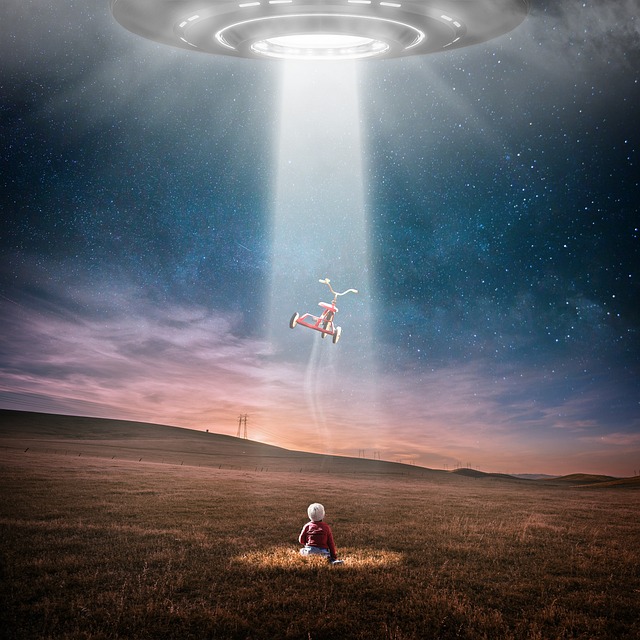
Handling complex concepts and ideas
The genre often explores complex concepts and ideas, such as time dilation, quantum mechanics, or societal paradigms. It’s essential for writers to present these concepts in a manner that is understandable and engaging for readers without sacrificing the intellectual depth of the narrative. Striving for clarity and employing effective storytelling techniques, such as analogies or character-driven explanations, can help bridge the gap between complex ideas and reader comprehension.
Science fiction is a genre that pushes the boundaries of our imagination, encouraging us to explore vast and uncharted territories. With its unique blend of imaginative settings, advanced technologies, and speculative ideas, the genre offers a canvas upon which writers can craft compelling narratives that delve into profound social and philosophical themes. Through careful attention to worldbuilding, character development, and storytelling techniques, the genre authors can transport readers to extraordinary worlds that captivate and inspire. So let us continue to journey into the unknown, exploring what lies beyond the limits of our present reality and embracing the infinite possibilities that await us in the realm of science fiction.